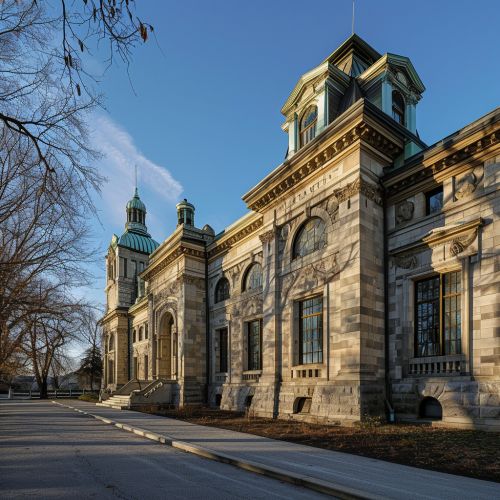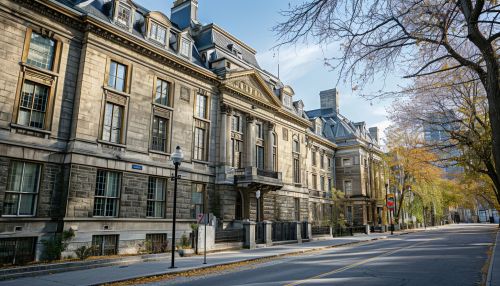Royal Society of Canada
Overview
The Royal Society of Canada (RSC) is the senior national, bilingual council of distinguished Canadian scholars, humanists, scientists, and artists. The primary objective of the RSC is to promote learning and research in the arts, the humanities, and the natural and social sciences.
History
The Royal Society of Canada was established in 1882 by the Governor General of Canada, the Marquis of Lorne, who desired a Canadian counterpart to Britain's Royal Society. The society was incorporated by a statute of the Parliament of Canada in 1883.
Structure
The RSC consists of three bilingual Academies, including over 2,000 Fellows, selected by their peers for outstanding contributions to the natural and social sciences, in the arts and in the humanities. The Society's requirement for election to the Academies is intellectual achievement, as evidenced by scholarly research or artistic work.
Activities
The RSC is dedicated to encouraging education and the advancement of knowledge. The society organizes conferences and workshops, sponsors research, awards prizes, publishes scholarly journals, and supports students.
Membership
Membership to the RSC is considered one of the highest honours in Canadian academia. Fellows of the RSC are chosen by their peers for their outstanding contributions to their field.
See Also
- Canadian Academy of Health Sciences
- Canadian Academy of Engineering
- National Research Council (Canada)


